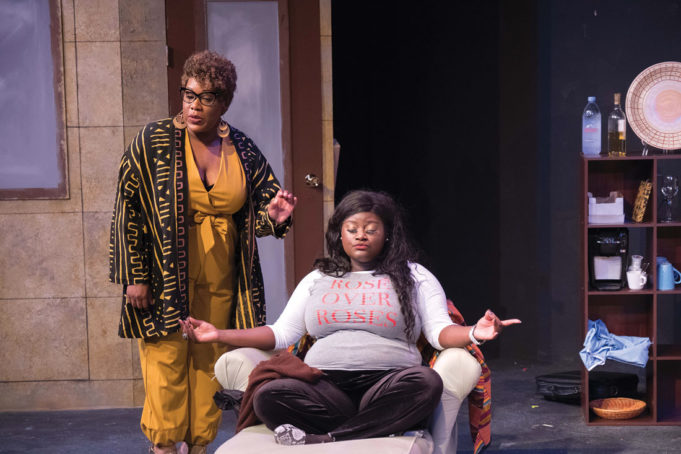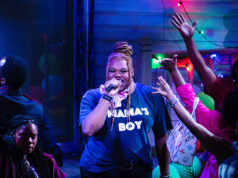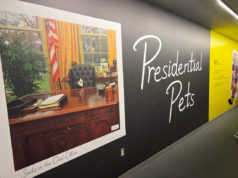I think Jubilee Theatre’s Single Black Female would have worked better as material for an African-American woman’s standup comedy set than as a stage play. It would have also worked better if we had seen it in 2006, when Lisa B. Thompson’s two-actor piece premiered on Broadway. Then, Barack Obama had only distant prospects for the presidency and the play’s opening thesis of “black women are invisible” undoubtedly rang clearer. In the 13 years since, the culture has shifted mightily, and while it hasn’t come close to creating parity, this script could have used a rewrite, especially now.
As I said, two actresses (Cherie Williams and Naeaidria M. Callihan) portray a professor and an architect in New York City as their base characters, changing in and out of costume to switch into the roles of men they’ve dated, female relatives, white girls, or annoying customer service reps. What follows is about 80 minutes’ worth of bemoaning the troubles of finding a man who isn’t turned off by their college degrees and economic self-sufficiency. They go through a litany of exes who turned out to be jerks. They ponder the possibilities of dating women or white men. They venture into the world of online dating. They fend off the inevitable “When are you going to get married?” queries from their mothers and aunties.
It doesn’t help that the weakest material in here comes near the beginning, when the women run down the brand names to be found in educated black women’s homes, including subscriptions to Essence, Jet, and Vibe. (Regarding the last, the professor says, “I gotta keep up with my students’ cultural references.”) The women tell us that “This isn’t Sex and the City,” but here the action plays like that show at its consumeristic worst.
That SATC jab is the sign of a deeper problem. Pop culture references go stale quickly, and the ones here haven’t kept up. These characters use Oprah as their touchstone for what they aspire to, but surely their equivalents today would be using Michelle Obama, Beyoncé, Serena Williams, or someone else who’s expanded our notions of what a successful black woman’s life can look like.
The play is on sturdier ground when it’s addressing less timely concerns, such as when one of our women watches another black woman rant at a Latina sales clerk (“Señorita, do you speak American?”) and confesses to being mortified whenever an African-American is on either the giving or receiving end of such a public meltdown. Some of the lines haven’t lost their pop, as when one woman responds to the other’s statement that she swims to keep in shape: “Heifer, you do not swim! That thing is called a whirlpool.”
The two actresses bring some good energy levels to the piece, with Williams being the better one at embodying the supporting characters. Though the direction by vickie washington is fine, it can’t do anything about the play’s biggest issue: Thompson circles and circles without ever arriving at any sort of conclusion about the subject matter she has chosen. Nothing really happens here. I’m as much in favor of black female validation as the next guy, but I want a little more flair with it when I’m at the theater. Maybe a character who changes during the course of the play instead of delivering pronouncements to us, as funny and insightful as they might be? While Single Black Female has some things that are worth seeing, the powers of Jubilee Theatre stretch only so far. They can’t turn this flawed material into something good.












